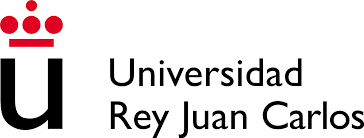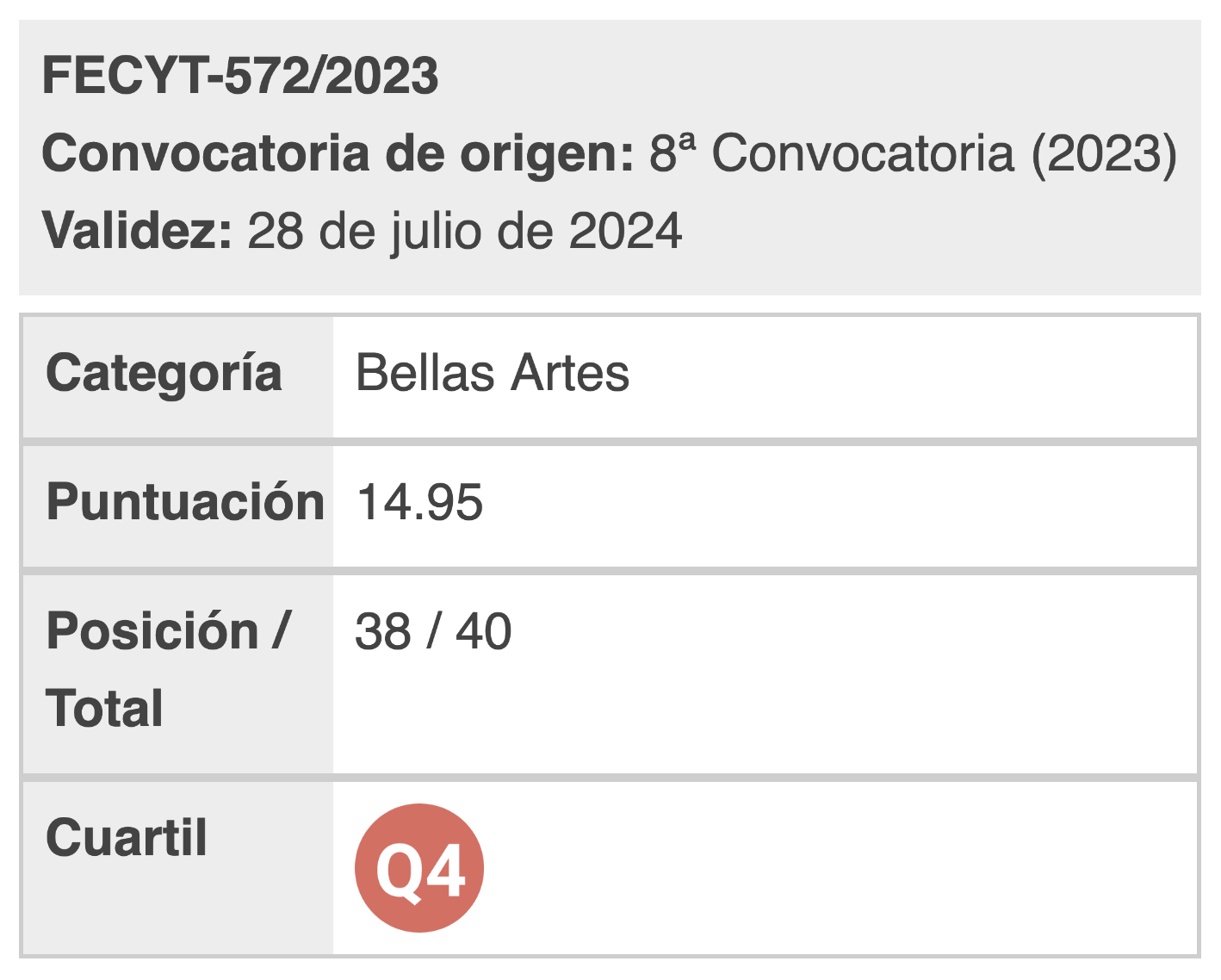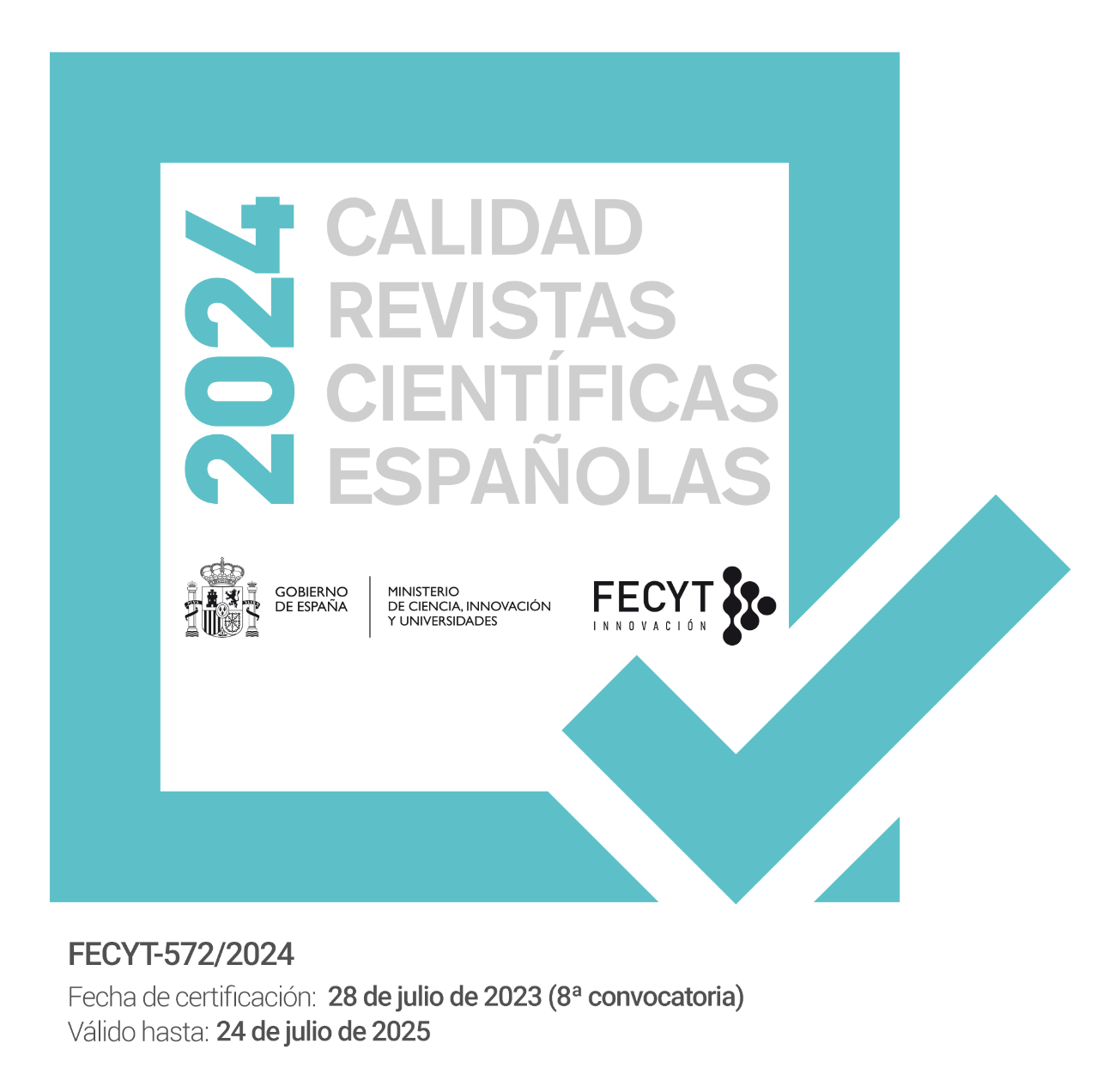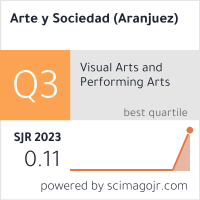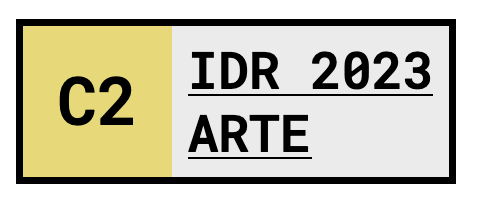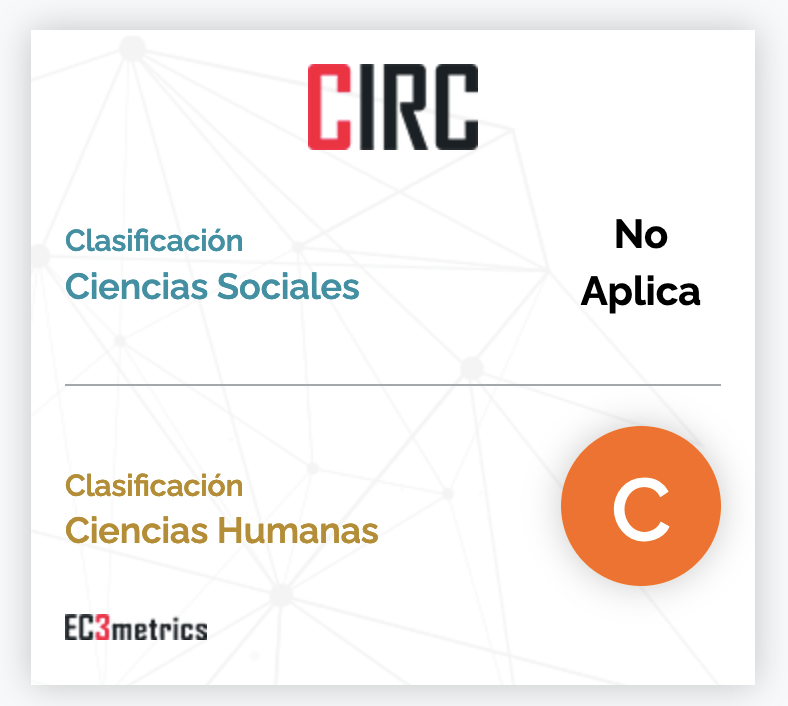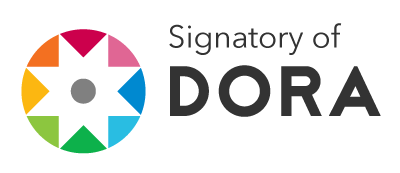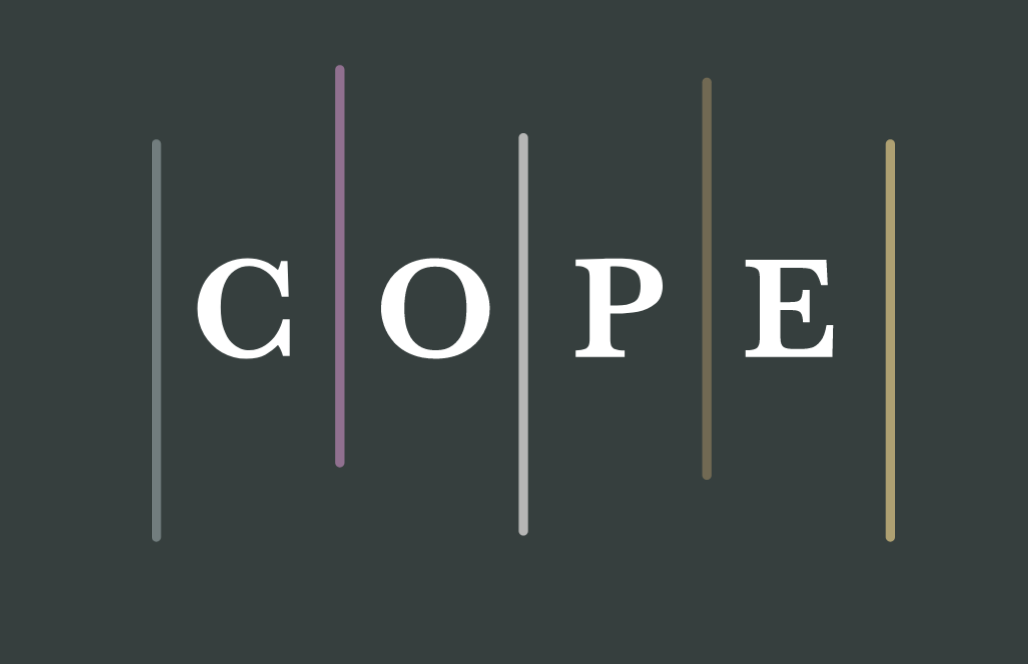THE NON-DIGITAL REVOLUTION OR HOW POSTDIGITALITY CHALLENGES OUR CULTURAL PRESENT
DOI:
https://doi.org/10.5281/zenodo.8182808Keywords:
Culture, Digital, Ecopedagogy, postdigital, TechnologyAbstract
This paper presents the concept of postdigital as a lens from which to approach and examine our immediate cultural present. For this purpose, it proposes an analysis of the term, as well as of the relationships it establishes with other philosophical concepts and concludes by examining its most immediate links with the development of current (digital) culture and the possibilities it offers in this context. A description of the notion of postdigital is thus established that moves away from the disruptive and deterministic definition that commonly accompanies technological discourse, in favour of a critical look at the structure and scientific development that underlies the current network-society. A social paradigm that not only generates connections and public spaces but also a change of conception of how the media are structured and who has access to them. It concludes by understanding the postdigital perspective as necessary to understand and question our current present, proposing to reflect on collective modes of thought and action to generate an ecopedagogy of knowledge.
References
Aparici, R., Escaño, C., y García-Marín, D. (2018). Espectáculo y mercado pedagógico en el capitalismo informacional. En R. Aparici, C.s Escaño y D. García-Marín (Coords.), La otra educación. Pedagogías críticas para el siglo XXI (pp. 141-157). UNED - Universidad Nacional de Educación a Distancia.
Baudrillard, J. (1985). El éxtasis de la comunicación. En Hal. Foster., (Ed) La posmodernidad (pp. 187-199). Kairós.
Bauman, Z. (2006). Vida líquida. Paidós.
Berners-Lee, T. (2000). Tejiendo la red. Siglo XXI de España.
Castells, M. (1996). La era de la información: Economía, Sociedad y Cultura. Vol.1 La sociedad red. Alianza Editorial.
Castells, M. (2009). Comunicación y poder. Alianza Editorial.
Cramer, F. (2015). What is ‘post-digital’? En Postdigital Aesthetics: Art, Computation and Design (pp. 12–26). https://doi.org/10.1057/9781137437204_2.
Cramer, F. y Jandrić, P. (2021). Postdigital: A Term That Sucks but Is Useful. Postdigital Science and Education, 3(3), 966–989. https://doi.org/10.1007/s42438-021-00225-9.
van Dijk, J. (2006). The Network Society (Second). SAGE Publications.
Efland, A., D, Freedman, K., y Stuhr, P. (2003). La educación en el arte posmoderno. Paidós Ibérica.
Escaño, C. (2019). Sociedad postdigital (ontología de la remezcla). Iberoamérica Social: Revista-Red de Estudios Sociales, 7(XII), 51-53.
Escaño, C. y Mañero, J. (2022). Postdigital Intercreative Pedagogies: Ecopedagogical Practices for the Commons. En P. Jandrić y D.R. Ford (Eds.) Postdigital Ecopedagogies Genealogies, Contradictions, and Possible Futures (pp. 231-246). Springer.
Eubanks, V. (2018). Automating Inequality. How high-tech tools profile, police, and punish the poor. St. Martin’s Press.
Foster, H. (1985). Introducción al posmodernismo. En La posmodernidad (pp. 7-19). Kairós.
Fuller, S., y Jandrić, P. (2019). The Postdigital Human: Making the History of the Future. Postdigital Science and Education, 1(1), 190-217. https://doi.org/10.1007/s42438-018-0003-x.
Gere, C. (2008). Digital Culture. En Springer Series on Cultural Computing (2nd ed.). https://doi.org/10.1007/978-3-319-97457-6_1.
Jameson, F. (1985). Posmodernismo y sociedad de consumo. En Hal Foster (Ed.) La posmodernidad. (pp. 165-187). Kairós.
Jandrić, P. (2017). Learning in the Age of Digital Reason. Sense Publisher.
Jándrić, P., y Ford, D. R. (2022). Postdigital Ecopedagogies: Genealogies, Contradictions and Possible Futures. Postdigital Science and Education, 3(4), 692-710. https://doi.org/10.1007/s42438-020-00207-3.
Jandrić, P., Knox, J., Besley, T., Ryberg, T., Suoranta, J., y Hayes, S. (2018). Postdigital science and education. Educational Philosophy and Theory, 50(10), 893–899. https://doi.org/10.1080/00131857.2018.1454000.
Jandrić, P., Ryberg, T., Knox, J., Lacković, N., Hayes, S., Suoranta, J., Smith, M., Steketee, A., Peters, M. A., McLaren, P., Ford, D. R., Asher, G., McGregor, C., Stewart, G., Williamson, B., y Gibbons, A. (2019). Postdigital Dialogue. Postdigital Science and Education, 1(1), 163–189. https://doi.org/https://doi.org/10.1007/s42438-018-0011-x.
Jenkins, H. (2008). Convergence Culture. La cultura de la convergencia de los medios de comunicación. Disponible en: https://stbngtrrz.files.wordpress.com/2012/10/jenkins-henryconvergence-culture.pdf.
Knox, J. (2017). Critical Education and Digital Cultures. En M. A. Peters (Ed.), Encyclopedia of Educational Philosophy and Theory. https://doi.org/10.1007/978- 981-287-588-4.
Krüger, K. (2006). El concepto de «sociedad del conocimiento». Biblio 3W. Revista Bibliográfica de Geografía y Ciencias Sociales, XI. https://doi.org/10.1344/b3w.11.2006.25676.
Lazarus, J. (2019). Hacking the MOOC: Towards a Postdigital Pedagogy of Critical Hope. Postdigital Science and Education, 1(2), 391–412. https://doi.org/10.1007/s42438-019-00063-w.
Mañero, J. y Escaño, C. (2022) A systematic review approach to the understanding of intercreativity as an educational resource, Interactive Learning Environments. https://doi.org/10.1080/10494820.2022.2086573.
McLuhan, M. y Fiore, Q. (1987). El medio es el masaje. Un inventario de efectos. Paidós.
Mirzoeff, N. (2016). Cómo ver el mundo. Una nueva introducción a la cultura visual. Paidós.
Negroponte, N. (12 de enero de 1998). Beyond digital. Wired. Disponible en: http://www.wired.com/wired/archive/6.12/negroponte.html.
Negroponte, N. (1995). El mundo digital. Ediciones B.
Organización de las Naciones Unidas para la Educación, la Ciencia y la Cultura (2005). Hacia las sociedades del conocimiento. Disponible en: http://www.lacult.unesco.org/docc/2005_hacia_las_soc_conocimiento.pdf.
Padilla, M. (2012). El kit de la lucha en Internet. Traficantes de sueños.
Peters, M.A, y Besley, T. (2018). Critical Philosophy of the Postdigital. Postdigital Science and Education, 1(1), 29–42. https://doi.org/10.1007/s42438-018-0004-9.
Peters, M.A, Besley, T., y Jandrić, P. (2018). Postdigital Knowledge Cultures and Their Politics. ECNU Review of Education, 1(2), 23–43. https://doi.org/10.30926/ecnuroe2018010205.
Peters, M.A. y Jandrić, P. (2018). Peer production and collective intelligence as the basis for the public digital university. Educational Philosophy and Theory, 1857, 1-14. https://doi.org/10.1080/00131857.2017.1421940.
Peters, M.A, Jandrić, P., y McLaren, P. (2020). Viral modernity? epidemics, infodemics, and the ‘bioinformational’ paradigm. Educational Philosophy and Theory, 1-23. https://doi.org/10.1080/00131857.2020.1744226.
Prada, J.M. (2012). Prácticas artísticas e Internet en la época de las redes sociales. Ediciones Akal.
Sinclair, C. y Hayes, S. (2018). Between the Post and the Com-Post: Examining the Postdigital ‘Work’ of a Prefix. Postdigital Science and Education, 1, 119-131. https://doi.org/10.1007/s42438-018-0017-4.
Vattimo, G. (1990). Posmodernidad: ¿una sociedad transparente? En En torno a la posmodernidad (pp. 9-21). Anthropos.
Zafra, R. (2017). El entusiasmo: precariedad y trabajo creativo en la era digital. Anagrama.

Published
How to Cite
Issue
Section
License

This work is licensed under a Creative Commons Attribution 4.0 International License.
You are free to:
Share — copy and redistribute the material in any medium or format.
Adapt — remix, transform, and build on the material for any purpose, including commercial.
Attribution — You must properly acknowledge the authorship, provide a link to the license, and indicate if any changes have been made.
You may do so in any reasonable manner, but not in any way that suggests that you endorse or receive any endorsement by the licensor for your use.
No additional restrictions — You may not apply legal terms or technological measures that legally restrict you from doing what the license allows.

